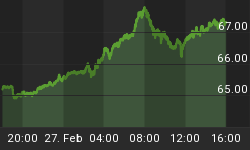Germany is one of the largest economies in the world. That means that critical German elections that will likely usher in a post-Merkel powerhouse should be getting everyone’s attention. Rather a lot is at stake for the market, from the European Union’s single currency to global trade relations and beyond.
According to the most recent ZEW survey, a barometer of business sentiment for the region, optimism has taken a plunge ahead of elections.
As Bloomberg points out, when optimism plunges like this, it takes currency with it. We’ve seen the euro weaken against the dollar, trading dangerously low amid German election uncertainty.
On September 26th, Germans will cast the votes to choose a new government and decide who will succeed Angela Merkel, who is standing down after 16 years as chancellor.
According to polling data from German Bild, Chancellor Merkel’s party, the CDU (in a coalition with CSU), has given up its lead and is now down to 22% of projected votes, from 28% earlier. The Social Democratic Party (SPD) has increased its projected vote by 23%.
If that’s how things pan out, it would be the first time in 15 years that the SPD has overtaken the CDU/CSU alliance in the polls. That’s where much of the uncertainty stems from.
After coalition negotiations, the new parliament is likely to involve two or three parties.
Parties with less than 5% of the national vote are not awarded proportional parliamentary seats.
It is still too early to make a solid forecast of what ruling coalition may emerge, but observers will be wondering if the new Germany will be more flexible toward public spending both within its borders and in the EU.
Goldman Sachs, which just a couple of weeks ago was examining this from a post-Merkel perspective but a CDU/CSU victory, says Germany will struggle with climate change issues, trade friction and an aging population, as reported by CNBC.
“We see Germany exposed to a number of medium-term challenges, related to the missed structural opportunities during the Merkel years,” Goldmananalysts said, adding that “the next government faces a balancing act between achieving the country’s ambitious climate goals and reaping the economic benefits from the green transition.”
Goldman is also concerned about the vulnerability of Germany’s “export-oriented economy”, noting that while the country is Europe’s economic powerhouse due to exports, there are concerns about supply chain issues, protectionism sentiments and Brexit. Stagnating global trade, Goldman says, could hamper German exports.
If the SPD wins these elections even in a two-way coalition, it could be “modestly negative for markets” because of the higher level of certainty, which could carry on beyond the immediate or short term, according to Holger Schmieding, chief economist for Berenberg, cited by Reuters.
And it’s not just election uncertainty that has Germany on edge. The pandemic has led to the cancellation--yet again--of the beloved Oktoberfest, the world’s largest annual beer festival that brings $1.5 billion for the local economy from an average 6 million visitors.
















